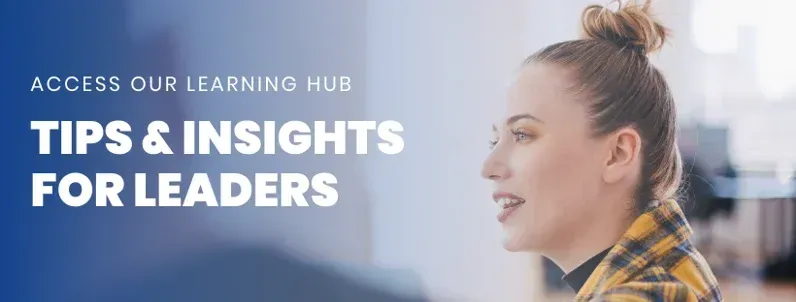The Surprising Things Leaders Can Learn During Job Interviews
In today’s talent landscape, there’s no doubt recruitment is a two-way street.
Gone are the days of an organisation being in the drivers’ seat and holding all of the decision making power in a recruitment process.
Attracting the best talent is business-critical - and it’s more competitive than ever before.

Great candidates will have a number of options - and how you conduct your recruitment process will have a direct bearing on how they feel about your organisation - and whether they’re likely to accept a job offer from you.
Just as the recruitment process has evolved, so too has the job interview.
Effective interviews don’t need to follow a strict Q&A format - and the hiring manager/ organisation shouldn’t be asking all of the questions.
Many leaders believe that a great interview is more like a conversation than a Q&A style ‘test’. Just with any conversation, both parties have questions to ask - and it’s important to listen to the answers you receive.
It’s also important that you don’t perceive candidates asking frank or direct questions in a negative light. Asking questions as a job seeker isn’t being confrontational - it shows that someone is highly engaged and pragmatic.
Approaching the Interview Process
If you’re committed to finding the best possible person to join your team, how you approach an interview is very important.
The first thing to remember is that great candidates will ask questions. And some very valuable insights can be gained from these questions.
As a hiring manager, you need to be prepared with clear, comprehensive answers - and practice active listening during your interviews. Coupled with an open, inquisitive mindset, active listening can enable you to learn so much more than simply a person’s work history and technical skills.
Given the opportunity at the end of an interview, most candidates will ask about the recruitment process and when they can expect feedback. This is a great sign and shows that they are engaged and interested in your role.
Some might ask about the team or organisational culture and perhaps about standard working hours and employee benefits.
Beyond those standard ‘what’s in it for me’ questions, really great candidates will ask ‘bigger’, deeper and perhaps unexpected questions. At first you might feel like the interviewee (rather than the interviewer), but remember - this process is a two way street.
Consider this - someone who asks frank and fearless questions in a job interview could make an exceptional employee.
The questions a candidate asks you will arguably reveal more about them than their answers to your questions.
Types of Candidate Questions to Expect
Here are some examples of candidate questions and what you might learn from them. It’s important that your recruitment partner is prepared to answer these questions.
Feedback-based Questions
Towards the end of the interview, if someone asks for feedback on their interview and suitability for the role, they are showing not just a keenness for the opportunity - but a healthy appetite for self-reflection and a level of self-awareness.
Challenge-based Questions
If they ask you about the biggest challenges in this role and facing the person who performs it, they are probably a realist who appreciates an honest/upfront approach. Perhaps they love to be challenged, perhaps they’re concerned about their ability to perform the role. Listen and watch carefully when you answer this question - there might be non-verbal cues to show their appetite for challenge.
Development-based Questions
If a candidate asks you about career development and progression opportunities, they are likely an ambitious/driven person with a growth mindset. If that’s what you need in your team and you can offer progression, great! If there are limited growth or progression opportunities in the role and team, it’s best to address this from the outset.
Fulfilment-based Questions
If you’re asked a question about what you enjoy most about your job and employer, you have a candidate who values job satisfaction, a high level engagement in their work and strong employee morale.
Management-based Questions
And finally, if a candidate asks you about your management style, they’re probably someone who enjoys some autonomy at work - and wants to make sure you’re not going to micromanage them.
It’s important to see candidate questions during a job interview in a positive light. These types of questions often come from intelligent, highly engaged professionals who are likely to be high performing employees.
Even if some of the questions challenged you or were unexpected, remember that the best recruitment outcomes are achieved when both parties are actively engaged in the process and motivated to work together for the right reasons.
Treating the interview as an honest, open conversation between two equal parties is the best way to achieve a positive, sustainable recruitment outcome.









